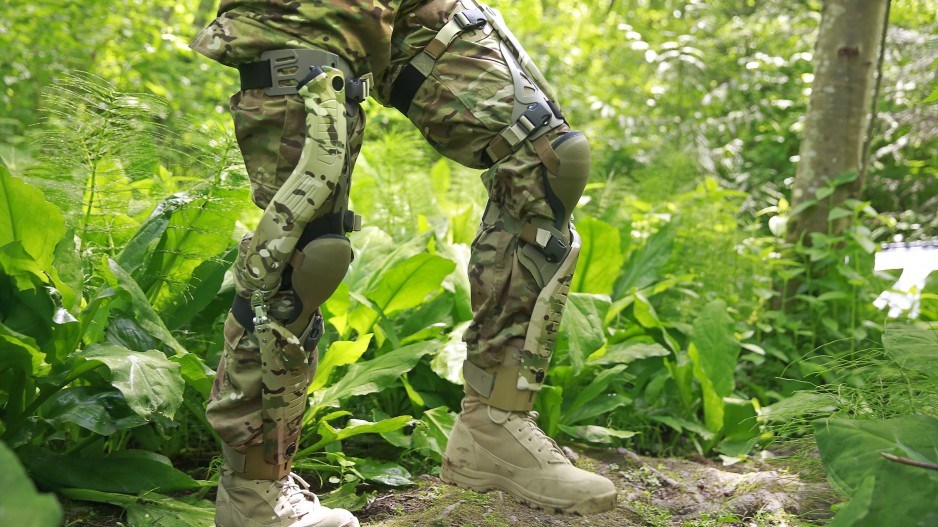The PowerWalk Kinetic Energy Harvester—a leg-mounted exoskeleton—is the brainchild of Max Donelan, a professor in SFU’s biomedical physiology and kinesiology department. Donelan spun the invention out of the lab and into a company called Bionic Power Inc. The company has now signed a US$1.25-million contract with the U.S.’s Office of the Secretary of Defense to field test the technology.
This is just the beginning, said Yad Garcha, Bionic Power CEO. The device could be used globally.
“Military organizations around the world are looking for ways to take weight off the backs of their troops,” he said in a release.
The technology is expected to help soldiers decrease the weight of carrying batteries, which can weigh up to 20 pounds. Batteries are needed to power electronics on extended missions away from base. The invention enables users to produce 10 to 12 watts of power. Walking for an hour is expected to charge up to four smart phones, according to the company’s website.
“If a soldier can generate 10 (to) 12 watts of power while wearing energy harvesting devices, we can potentially reduce the soldier’s load … and the unit’s reliance on field resupply, and extend the duration and effectiveness of the mission,” states a U.S. Army engineer on the company’s website.
Bionic Power signed an initial contract with the U.S. Army two years ago for US$3.8 million. A US$1.25-million extension followed in May. Testing will involve both the Marine Corps and the Army and is expected to start early to mid-2017.
Donelan’s initial research was funded by a Natural Sciences and Engineering Research Council grant, with the purpose of finding new ways to charge portable battery-powered devices. The idea quickly became attractive in military circles. However, the technology also has potential applications to the medical community and general consumers.
“The concept grew from the simple notion that power from our bodies is both efficient and portable,” said Donelan.
Bionic Power Inc. was recently named to 2016’s Ready to Rocket Life Science list.




